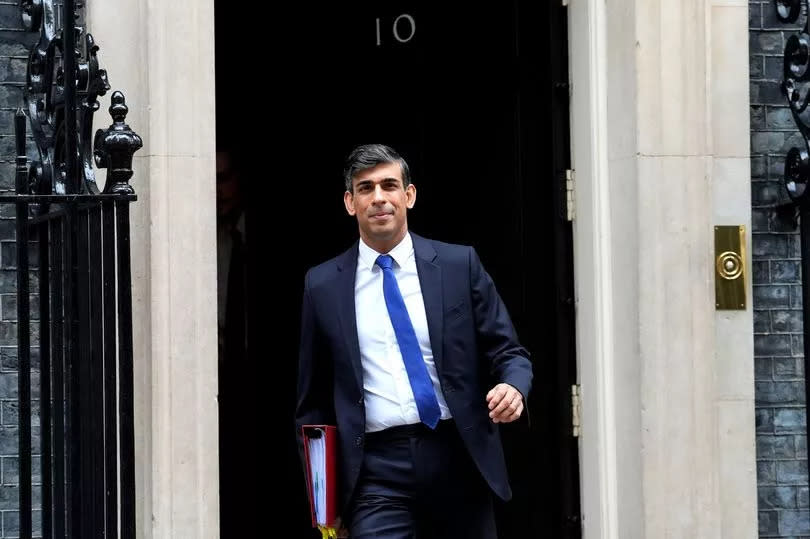DWP crackdown could see millions of people lose benefit payments

A new crackdown on benefits claimants is expected to be announced later today by Prime Minster Rishi Sunak, amid a post-pandemic rise in people being declared unfit to work that saw the NHS issue 11 million sick notes in 2023.
There has been an increase of one-third in the number of people described as economically inactive due to long-term sickness since the pandemic, with 2.8 million people in Britain now out of work due to ill health. The Prime Minister's plan to tackle this rise in economic inactivity is to reform what he calls "sick note culture".
The government has expressed concerns that the fit note system has "opened the floodgates" for millions of people to be declared "not fit to work" by their GP and so, as part of their reforms, will consider removing GPs from the equation entirely. As part of the reforms, "specialist work and health professionals" could instead issue sick notes, alongside an "objective assessment" of whether someone is fit to work.
READ MORE: DWP Universal Credit claimants warned 6.7 per cent rise may not be paid until June
Before these measures are put in place, Rishi Sunak's government will hold a call for evidence from healthcare professionals and employers to find out how to support people with health conditions to start work.
In a speech later today, the Prime Minister is expected to say: “We don’t just need to change the sick note, we need to change the sick note culture so the default becomes what work you can do – not what you can’t.
“Building on the pilots we’ve already started we’re going to design a new system where people have easy and rapid access to specialised work and health support to help them back to work from the very first Fit Note conversation.
“We’re also going to test shifting the responsibility for assessment from GPs and giving it to specialist work and health professionals who have the dedicated time to provide an objective assessment of someone’s ability to work and the tailored support they need to do so.”
This sharp rise in long-term sickness has also seen a sharp rise in Department for Work and Pensions spending, as more people claim disability and sickness benefits. Since the pandemic, taxpayer spending on these benefits has risen by two-thirds, from £42.3 billion to £69 billion.
The government says that the fit note process has become the first step to someone falling out of work, with evidence showing that the longer someone is out of work, the harder it is to get back into it. Of the 2.8 million people declared unfit to work last year, a survey found that 53 per cent experienced depression, bad nerves, or anxiety.
The Prime Minister is also expected to say in his planned speech: “We should see it as a sign of progress that people can talk openly about mental health conditions in a way that only a few years ago would’ve been unthinkable, and I will never dismiss or downplay the illnesses people have.
“But just as it would be wrong to dismiss this growing trend, so it would be wrong merely to sit back and accept it because it’s too hard; or too controversial; or for fear of causing offence. Doing so, would let down many of the people our welfare system was designed to help.
“Because if you believe as I do, that work gives you the chance not just to earn but to contribute, to belong, to overcome feelings of loneliness and social isolation and if you believe, as I do, the growing body of evidence that good work can actually improve mental and physical health…
“…then it becomes clear: we need to be more ambitious about helping people back to work and more honest about the risk of over-medicalising the everyday challenges and worries of life.”

 Yahoo News
Yahoo News 
